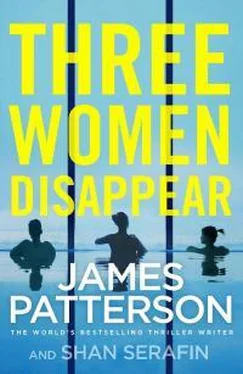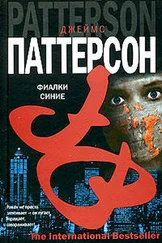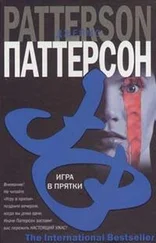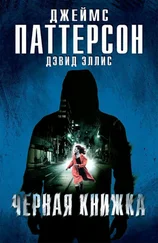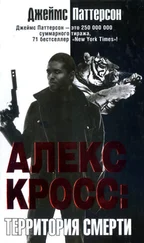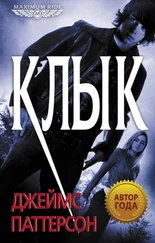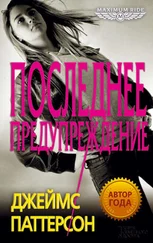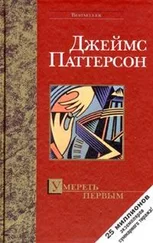They carried on what looked like a lively conversation for the better part of an hour, then made their way to the movie theater around the corner, an indie house showing two titles, one French and one German. Símon was eager to impress.
I looked at my watch, figured I had a couple of hours to kill before they came back out. I hadn’t eaten since breakfast. I grabbed three slices at the pizza parlor across from the theater, then strolled over to Símon’s Honda Civic and opened the driver’s-side door with a slim jim.
I was looking for any sign of Serena: a receipt from a store in Anthony Costello’s zip code, one of the ESL workbooks my wife was always giving her, a piece of Anna’s jewelry. But the interior was spotless. Of course it was: if Símon played his cards right, he’d have company on the ride home.
I checked the glove compartment. Nothing but the vehicle’s registration and an illustrated primer on the flora and fauna of the Everglades. Nothing much in the trunk, either. Just a spare tire, a jack, and a stash of environmentally friendly grocery bags.
Símon was starting to annoy me.
I glanced at my watch. The movie was only a half hour in. Chances were they’d stop for another drink after, maybe even a late meal. Unless Símon’s sister planned on crashing date night, there was no point in my continuing to tag along. It occurred to me that I could break into his apartment just as easily as his car. If Serena was there, camped out on his couch, so much the better. If not, there might be something to indicate where she’d gone. I copied Símon’s current address off the registration, then locked up and walked back to my car.
Símon lived in Ybor City in a funky but upscale building, a nineteenth-century boarding school that had been converted into condominiums in the nineties. I got past the lobby door with a bump key and some elbow grease, took the stairs two at a time up to his third-floor apartment. For a while, I just stood there listening, hoping to hear a television or radio, something to tell me Serena was home. But the only noise came from children fighting in a corner unit.
I rang the bell just to be sure, then slipped on a pair of latex gloves and let myself in. The lights were off, the windows open. I heard sporadic traffic coming from the street below, but otherwise the place was silent. I switched my phone to Flashlight, passed its beam over the living room, then kept going through the rest of the apartment. No doubt about it: Símon had done well for himself. French doors led to a balcony with a wrought iron railing. The raised kitchen was loaded with stainless steel appliances. Art from multiple continents hung on the walls. The hardwood floors were gleaming. Not a speck of dust anywhere. Not in the bedroom, the bathroom, the study. Almost as if he had a full-time maid.
Well, this was a bust , I thought.
When Vincent called tomorrow for his daily update, I’d have nothing to give him. Unless …
I was on my way out the door when it hit me: what if Símon killed Anthony? It was a theory with no supporting evidence, but still it felt plausible. When it came to women, Anthony was pure predator. His type always is. And Símon, from what I could gather, was pure gentleman. On a day picked at random, I’d seen him cry with an old woman over her dead cat, then greet his date with an innocent peck on the cheek. Símon, champion of the fair sex. He wouldn’t take kindly to someone pawing his kid sister.
Maybe I’d laid it on a little thick with Heidi, but I’d meant what I said: it was borderline impossible to believe that a 120-pound woman could bring down a mammoth like Anthony. Símon, on the other hand, acting as Serena’s white knight—that was easy enough to picture. Maybe he’d gone there to beat some manners into Anthony. Maybe his rage had gotten the better of him.
The idea struck me so hard that, without realizing it, I backed up and dropped onto the couch. But before I could think things through, I heard keys jangling outside, and then Símon’s front door swung open.
CHAPTER 15
ANNA COSTELLO
October 14
2:00 p.m .
Interview Room A
I NEEDED a place to hole up, gather myself. My first instinct was to book a room at the Four Seasons. Anthony and I spent our last anniversary there. We got into a blistering poolside fight, and then I didn’t see him again until two in the morning, when he stumbled in and passed out facedown on his side of the bed. Believe me, if I was going to kill him, I’d have done it then.
The problem with the Four Seasons—and the Peninsula, the Ritz-Carlton, the Regency—was that I’d need a credit card, and even if I weaseled my way in without one, I’d run the risk of being flagged by the staff. The Costello payroll reached far and wide, and then there were the wannabe thugs looking to ingratiate themselves with Vincent. I wasn’t above slumming it at a Super 8, but even that would be risky: a Bentley, even a scratched one, wouldn’t exactly blend in with the Hyundais and tractor trailers.
Meanwhile, I had to get off the street, at least for the six remaining hours of daylight. I pulled into a parking garage, drove up to the third level, and took a space between a minivan and a Ford F-150. No way to spot me unless you happened to turn your head as you were driving past. I figured I’d shut my eyes until dark, then drive straight out of Florida, put as many miles as I could manage between me and my dead husband’s family, then pawn the Bentley for a fraction of its worth and buy a one-way ticket to Buenos Aires. I’ve always wanted to learn the tango.
I didn’t sleep. If I can’t fall asleep in my own bed without swallowing a bucket of pills every night, then how was I going to drift off in a parking garage in the middle of the day? Especially knowing I was Uncle Vincent’s new most wanted? Still, I tried. I draped a scarf over my eyes and angled my seat back as far as it would go.
Which is why I didn’t notice Defoe walking up behind the Bentley with a crowbar. He’d smashed in my rear passenger’s side window and was fiddling with the lock by the time I had the key in the ignition.
“Don’t you dare!” he shouted. “Get out of the car. Now.”
I cranked the engine, shifted into reverse, stomped on the gas. Defoe leapt out of the way, but not before I clipped his leg. Johnny Broch materialized from between two SUVs, ran at the Bentley as if he might tackle it, then hurled himself onto the hood of a Fiat when I switched to Drive and laid on the gas again.
“Stop!” Defoe yelled. “We just want to talk.”
He was upright, hobbling at full speed toward his sedan. I might have asked him why he had his pistol out if he was only looking to chat. Broch, who was an easy six feet six inches and must have weighed three hundred pounds, half slid, half fell off the Fiat. He and Defoe made an unlikely pair: two thugs fat and fit, tall and short, young and old. I was running from Laurel and Hardy.
It’s hard to burn rubber in a parking garage. I lost my side mirror turning onto level two, nearly massacred an octogenarian and his shopping cart as I blurred down level one. Then I did something I’ve only seen in movies: I took out the boom barrier at the attendant’s station. Plowed right through it and dragged the remains skidding and sparking into the street. Pedestrians screamed, scattered, then screamed again when Defoe’s sedan came barreling after me.
The only direction I had in mind was away. I spun right at the first corner, then turned hard into an alley after I saw traffic backed up at the next light. I had the Bentley pushing seventy when a small slab of cement by the back door of a restaurant sent the car careening into a dumpster. The airbag nearly knocked me unconscious. By the time I’d scrambled out from under it, Defoe was limping toward me, his minion at his heels.
Читать дальше
